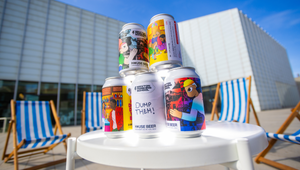
Why US Brands Are Terrified of Football. And What It'll Cost Them

Image credit: Loki Strike via Unsplash
Let's be honest. America doesn't get football. Not the kind the world actually plays. Not the kind where five-year-olds in Dakar nutmeg their dads before school. Not the kind used to defy tyrants, express culture, and bring whole cities to life.
Now football's coming to the States. The Club World Cup just ended. The men's FIFA World Cup is next. And most American brands are pondering what to do with the biggest cultural moment on earth landing in their backyard. Inside US boardrooms, there's a quiet panic. A fear of getting it wrong. Of calling it "soccer" in the wrong company. Of posting a meme that gets rinsed by ultras on Twitter.
So what do they do? They back off. They play it safe. They pull in the same old agencies who know how to do a Super Bowl ad but couldn't tell the difference between Bruno Fernandes and Bruno Mars. They might not offend. But they don't connect either. And that's the real failure. Being so afraid of saying the wrong thing, that you say nothing – or nothing worth hearing.
The Trump Moment is a warning shot. Look no further than the most surreal image from the Club World Cup final. Chelsea win. Confetti flying. Reece James lifting the trophy. And next to him? Donald Trump. He was meant to hand over the silverware, and move off stage. But instead, he lingered. Applauded. Took his place in the moment like it was a campaign rally. A man who doesn't know football, standing center-stage at one of its biggest global celebrations.
It was meant to be about Chelsea. Instead, it became a meme. The whole thing felt like the Super Bowl's awkward cousin trying to dress up in football clothes. This is what happens when you don't understand the culture. You accidentally turn sacred moments into circus acts.
The last four World Cups offer a masterclass in what works, and what spectacularly doesn't.
South Africa 2010 and Brazil 2014 got it right. They showed what football meant to them. Nike's ‘Write the Future’ had Didier Drogba lighting up African streets. Beats by Dre's ‘The Game Before the Game’ showed Neymar's dad giving him a pep talk, not just Neymar doing stepovers. Culture, energy and pride.
Russia 2018 and Qatar 2022 were cautionary tales. Pristine stadiums, forgettable creative. Brands played it safe, sidestepping the host nations entirely, creating beautiful but hollow campaigns that felt like video game trailers.
Here's what most American marketers miss: Football isn't content. It's not a product. It's a ritual. It's history. It's religion. When a kid in Buenos Aires wears a PSG shirt, it's not about brand loyalty. It's about Messi. Football is loaded. It has its own language, codes, and rules. If you don't know them, you're not in the club. Most US marketing hasn't bothered to learn. Come 2026, that lazy work won't just fall flat, it'll make you look ignorant, arrogant. Or worse, irrelevant.
The US has money, infrastructure, and brands desperate for global relevance. But none of that matters if you don't understand the culture. It’s not about you. Don't prove America loves the game, show how the game lives in America. From immigrant leagues in Queens to El Tri fans in LA. From women's grassroots in North Carolina to five-a-sides in Chicago parking lots. Authenticity beats assets. No one cares about how many rights you’ve bought.
If your campaign feels like it’s been written by people who watch highlights, and not matches, you’ve already lost. Risk is the entry price. You can’t play it safe and expect to be loved. The audience can smell fear. The best brands in football take a side, they pick a fight, wear it on their sleeve. Think global, feel local. Football's personal everywhere. Don't treat the World Cup like the Olympics - it's tribal, messy, loud, political.
You need global creatives who've lived this game, not just studied it. People who know why a derby is different, who've stood in the away end, who understand what it means, not just what it looks like. The biggest risk for American brands? Thinking this is about America. It's not. The World Cup is a global moment, and you can’t meet it with provincial thinking. The US has the stage, the mic, the budget. But if it doesn't show humility, curiosity, and cultural intelligence, it's going to fumble the biggest brand moment of the decade.
You've got two years. Get this wrong, and you'll be forgotten. Get it really wrong, and you'll be remembered for all the wrong reasons. Learn the game. Or sit out.
Read more from House 337 here.















